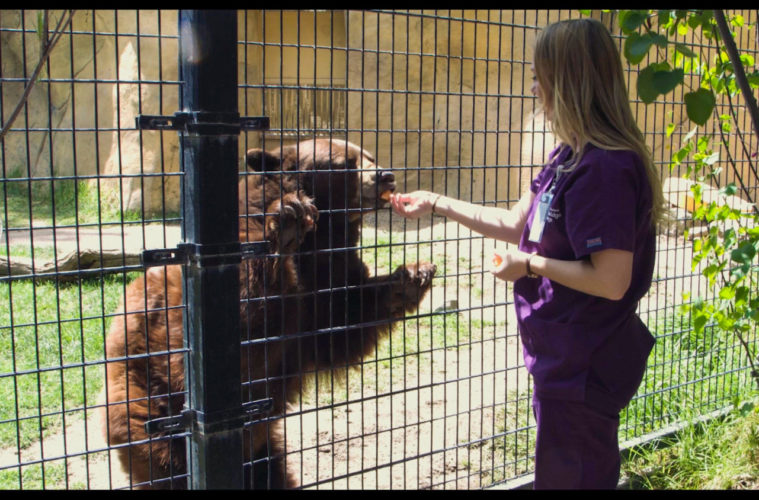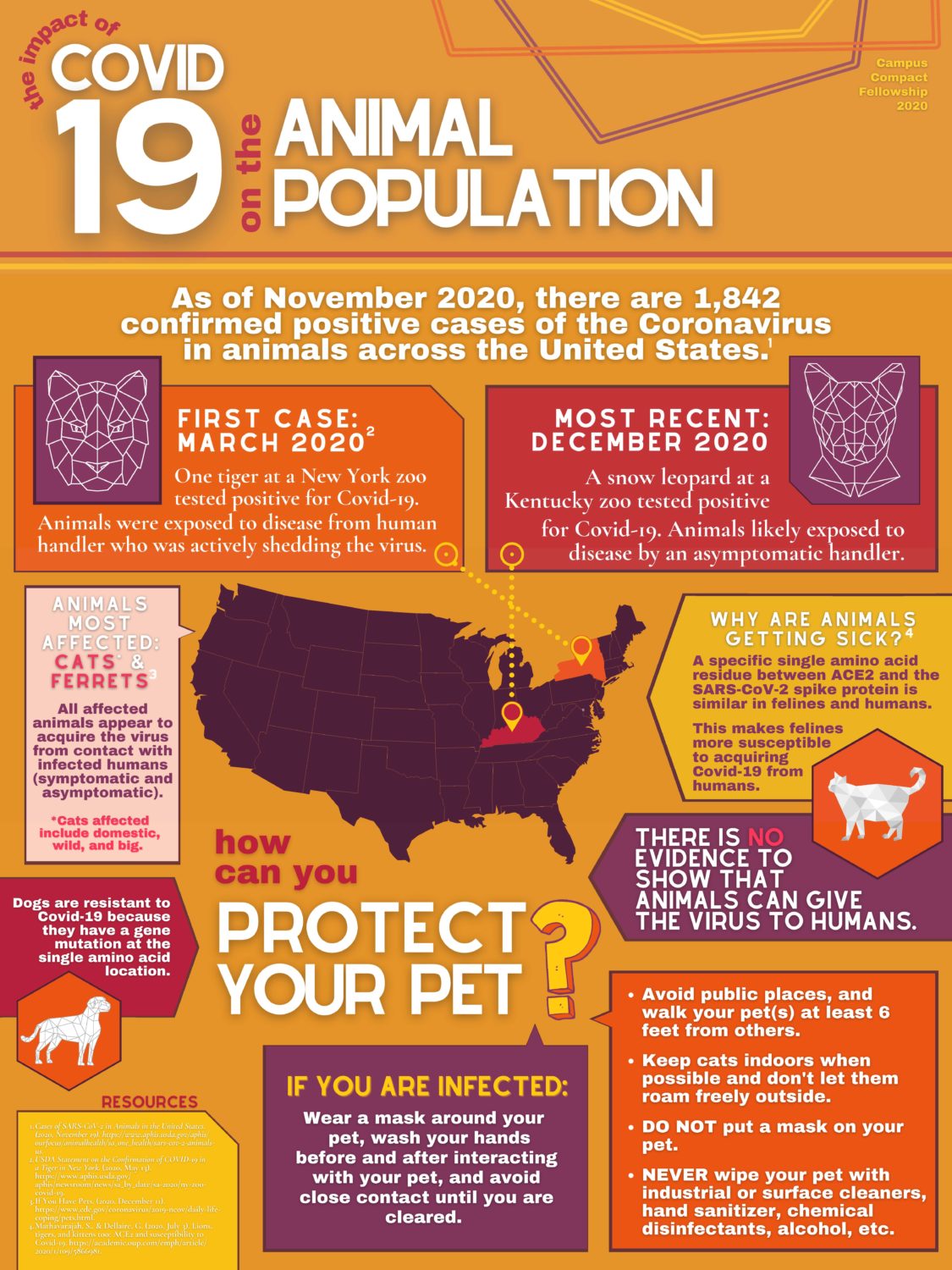Stanbridge University’s Vet Tech Program was created for students with a passion for animals, who were seeking to further their education in order to fulfill their dreams of a career as a veterinary technician.
Sara Wright is one of those dreamers. In her last term at the university, she’s already making her mark in the animal kingdom, thanks to her time at Lions, Tigers, and Bears big cat and exotic animal rescue. Bonding with big cats galvanized her goal of bettering the lives of animals everywhere, so when COVID hit and she had to reimagine her fellowship work, she knew just what to do.
“Originally my project was to work at the Lions, Tigers, and Bears (LTB) Wildlife Sanctuary in Alpine, CA,” she explains. “I was able to volunteer there for a very brief period of time before the pandemic hit and changed everything for everyone. Because I didn’t know how long the lockdown would last or what the real implications of the virus would become, I realized I had to change the nature of my project to be able to complete the fellowship hours. I was essentially given carte blanche to redefine my project, but I was inspired by the incredible animals and staff at LTB, and there were breaking news stories coming out about animals testing positive for the Coronavirus, so I decided to look further into it.”
As of November 2020, there were 1,842 confirmed positive cases of the Coronavirus in animals across the United States. The first case was detected in March 2020, in a tiger located at the New York zoo. Since then, more and more animals have been contracting the virus from human handlers/owners who are actively shedding COVID-19, regardless if symptomatic or asymptomatic.
The animals most affected by COVID-19 are cats and ferrets. It has been determined that dogs are resistant to COVID-19 due to a gene mutation at the single amino acid location.
While animals can contract the virus from humans, there is no evidence to show that animals can give the virus to humans.
The lack of common knowledge regarding animals and COVID-19 has been problematic for animal safety. Wright set about to fix that.
“There was so much information being released that it was hard to discern the facts, and people were getting really scared, to the point of relinquishing and surrendering their pets for [a false sense of] their families’ safety,” Wright says. “I decided to conduct a research project that ultimately helps animals by educating humans. I wanted to provide an easily digestible, one-stop resource to find core facts about the impact of the Coronavirus on the animal population, while also including the references if people wanted to find more detailed information.”
Stanbridge University’s Vet Tech Program helped to make her fellowship program goal come to life.
“Stanbridge University and the California Campus Compact-Community Engagement Student Fellow program provided me with the wonderful opportunity to experience the Lions, Tigers, and Bears Sanctuary! When the pandemic hit, I was also given the chance to choose how I continued my project,” Wright shares. “All of the information being released about COVID-19 and the animal population seemed geared more towards the animal medical professionals, but because of my unique perspective gained from my continuing education at Stanbridge, and being a pet owner myself, I wanted to make this information available to the masses in a digestible manner. Stanbridge provided me that incredible opportunity.”
What does one learn while going to school to become a veterinary technician?
“A registered veterinary technician (RVT) learns a wide variety of tasks such as how to properly hold an animal during treatment, how to assess an animal’s level of pain, how to calculate and administer anesthesia, how to perform radiographs and ultrasounds, and how to administer medications,” the proud student answers. “We also learn about various exotic animals and how to care for them.”
Wright regularly volunteers at animal hospitals, helps with a multitude of rescue and foster programs and events, and even fosters dogs with severe physical or emotional trauma to aid in their rehabilitation. Her goal is to become a Registered Veterinary Technician, and work in wildlife response and rehabilitation, helping care for animals affected by natural or man-made disasters.
“I have a quote from Carmelo Anthony saved on my phone that says, ‘every morning you have two choices: continue to sleep with your dreams, or wake up and chase them,’” Wright shares. “It motivates me to choose every day to work towards my goals, so I decided to chase my dream and passion instead of just thinking about it. I want to help and heal animals; be the voice for the voiceless. In my opinion, the way I could have the most impact was by going into the medical field and learning the hard stuff.”
To learn more about Stanbridge University’s Vet Tech Program, visit stanbridge.edu.
For more information on Wright’s project, including vital information regarding animals and the Coronavirus, you can view her detailed informational pamphlet below:
Advertising disclosure: We may receive compensation for some of the links in our stories. Thank you for supporting Irvine Weekly and our advertisers.



